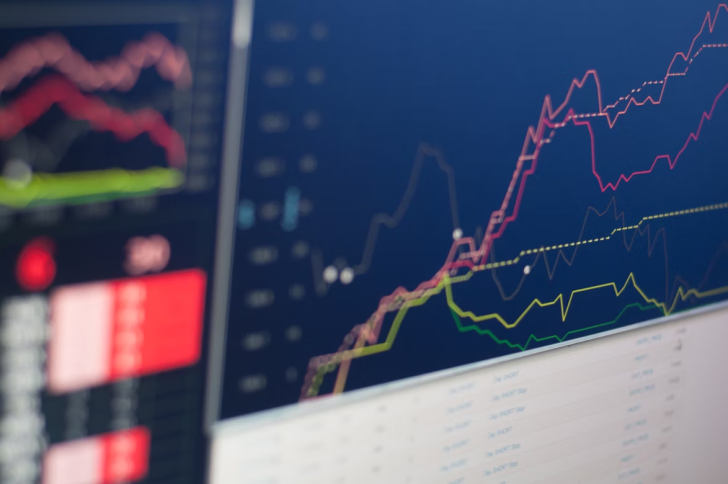If you're keen on taking baby steps toward trading, it's crucial to comprehend core divergences between the equity market and the Forex market. Regarding this correlation, you should keep an eye on a bulk of factors, including contrasting operating hours and obstacles, liquidity and unreliability, avenues for advancement and heterogeneity, and the footprint of business headlines and entity-specific issues.
Both Forex and stock trading are considered top-notch ways to establish your presence in the realm of negotiating. The prime asset allocation hinges on your risk propensity, time backlog, and fund mundane, all combined with proficiency and background. Let's take a look at the differentiation between Forex trading and equity trading, and whether there is any overlap between these pairs.
Forex vs Stocks - Hours of Negotiation
Forex operates as a one-of-a-kind leader of trading with the following characteristics:
- There is no innermost hub for the market.
- Participants are scattered all across the globe;
- A segment of the market is repeatedly employed.
As for any manipulations with stocks, this type of trading is predominantly restricted to designated hours. It means that stock investors must abide by the opening hours of the exchange.
Nevertheless, a few large-scale exchanges have implemented miscellaneous trading hours, allowing stock traders to partake in both early and secondary market sessions. Previously, these hours were only available to institutional investors, but advancements in electronic trading aimed to simplify the services for private lenders.
Forex takes the lead when setting equity and currency exchange trading over 24 hours. Forex beats the stock market if you would rather trade without interruptions.
Financial Leverage in Stocks vs. Currency Market

One convenience of currency exchange trading as against stock trading is the leverage offered by FX traders.
- If you are buying and selling stocks in actuality, you are most conceivably trading without harnessing the benefits.
- If you are into securities trading while using CFDs (Contracts for Difference), you can boldly apply a margin of earnings.
Generally, the best type of leverage for stocks is 1:10. In contrast, it is not uncommon for Forex speculators to provide leverage of 1:50, while some platforms offer leverage of up to 1:500. This gives you the ability to manage a larger position with less equity in your account. While leverage can be a potent weapon in trading, it can also cause devastating losses.
Stock Market vs. Forex - In Numbers
Let's take Microsoft as our illustration of a liquid stock and EUR/USD as our liquid cross currency. While trading Microsoft, you will cover the following expenses:
- Bid-ask Spread;
- A rake-off to your broker.
Bid-ask Spread can ordinarily extend from 2 cents to 5 cents for Microsoft under standard market conditions, which equates to approximately 0.04% to 0.09%. Rake-offs vary widely by broker, but you might pay 10 cents per share. The percentage is charged when you open and close the market.
Now let's compare this to trading EUR/USD.
The most widespread type of Forex trading is on a commission-free spread basis. With this account type, you might pay a 1 pip spread to trade EUR/USD with no extra commission.
When trading EUR/USD at 1.1190, this is a circuit transaction cost of 0.0001/1/1.1190. Are you eager to know how much that is as a percentage? It's less than 0.01%, which demonstrates a distinct advantage for Forex. Once you get the stock commissions, Forex trading appears even more lucrative.
Which Option is the Best Fit?

There is no one-size-fits-all solution to selecting between equity trading and currency exchange. Both options possess their benefits and pitfalls, relying on your preferences and the risks you are inclined to take.
Forex trading may be one step ahead if you are captivated by short-term trading and can cope with surging levels of risk. Conversely, investing in stocks may be a superior opportunity if you opt for long-term investing with a lower risk appetite.
Can I Invest in Both Forex and Stocks?
Yes, investing in both stocks and Forex allows you to branch out your portfolio by investing in different types of assets. It is worth mentioning that currency exchange trading can be touch-and-go due to the higher risk of flakiness and leverage involved.
Final Thoughts
So, which option may be your perfect match? It is advised to pick what is more convenient for you. If you are primarily about a particular type of market, we recommend that you stick to the one you are familiar with.
If you are more keen on a one-person business, then stock trading may be a good fit for you. Hence, your chances of becoming a prominent trader increase rapidly. Ultimately, the decision is yours.
 Editorial staff
Editorial staff

 Editorial staff
Editorial staff


